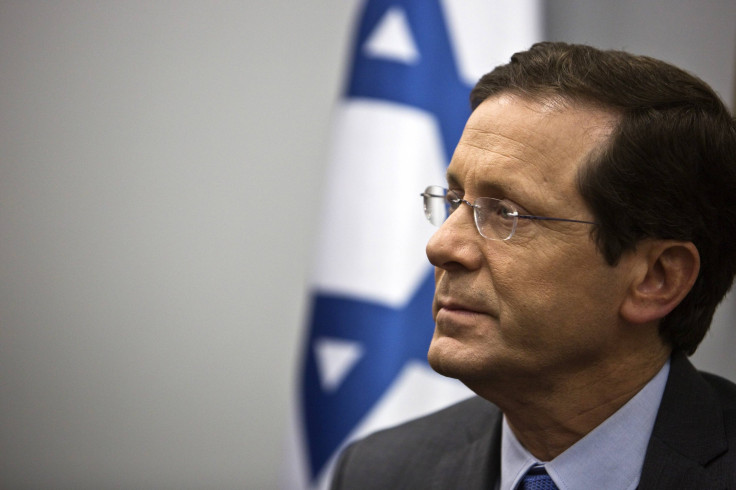Israel Elections: Centrist Politics Gains Momentum Against Netanyahu Amid Focus On Social And Economic Issues

Israeli Prime Minister Benjamin Netanyahu made headlines on the eve of his country’s tightly contested elections with an apparent disavowal of a two-state solution to the Israeli-Palestinian conflict, vowing that if he is re-elected there will be no Palestinian state. While Netanyahu’s statement is a commentary on the current state of negotiations, it is also testament to the dire political straits he and his right-wing Likud party find themselves in as centrist parties gain momentum.
The last polls released before Tuesday's vote showed the center-left Zionist Union bloc with a clear lead over Likud, with surveys by two of Israel’s leading newspapers predicting that the party would secure a four- to five-seat advantage in the country’s 120-seat Knesset. The expected success of the centrist appeal is a reflection of the Israeli public’s growing emphasis on social and economic concerns over the security issues that the prime minister has made a cornerstone of his campaign, experts said.
While Netanyahu has primarily emphasized the threat of a deal with Iran over its nuclear program, Israeli voters have been far more concerned with housing prices and the cost of living. The two issues dominated a recent debate among party leaders, with Zionist Union leader Isaac Herzog pledging to make 300,000 apartments available while subsidizing housing ownership.
“The whole political spectrum has shifted,” said Brent E. Sasley, an associate professor of political science at the University of Texas at Arlington. Though there have always been third parties at the center of Israel’s political spectrum, what has really empowered the Zionist Union and other centrist parties during this election is “the growth of centrist voters who are not happy with the way that the country’s social and economic trajectory has gone,” he said.
And Netanyahu’s Likud has emerged as the most visible target for blame. A recently released official report on the housing crisis placed the responsibility for skyrocketing costs squarely on his government. Bureaucracy and political gridlock were both cited as factors contributing to housing shortages that have seen prices soar by 55 percent since he took office in 2009. Official figures show that prices rose by another 5 percent last year, with the average Israeli now needing the equivalent of 148 months' salary to afford buying a home.
Herzog and his Zionist Union have capitalized on this, while playing it safe on security issues by downplaying sensitive subjects like the future of settlements and a final deal with the Palestinians, said Sasley. This has allowed the party to appeal to centrist voters who have been largely disillusioned by how previous leftist governments handled security issues but are also looking for an alternative to Likud’s perceived socio-economic failures.
The momentum behind a broader shift to the center in Israeli politics will depend not only on the Zionist Union’s showing but its ability to execute policies and show strength on the economy, if it does manage to form a government, said Ilan Goldenberg, director of the Middle East security program at the Center for a New American Security in Washington. “If Herzog is able to do that in a way that Netanyahu hasn’t, it will have significant long-term implications of who is the strongest party in Israel,” he said.
As important as socio-economic issues have been in this campaign, security will nonetheless remain the most important long-term issue for much of the Israeli electorate, according to Goldenberg. “What matters to the Israeli public is Israel's place in the world, including acceptance by Europe and the United States,” he said.
The sense that Israel is increasingly isolated on the international stage has been reinforced by recent boycott efforts in Europe along with clear fractures between Washington and the Netanyahu government, particularly around the prime minister's controversial address to Congress earlier this month. In this way, the Zionist Union has a clear opportunity to set itself apart from the right wing while claiming to restore Israel's confidence and strength internationally, Goldenberg said.
But any Zionist Union government would be in power only through a coalition of various parties of different ideologies, which will undoubtedly have difficulty agreeing on policies. In the most favorable according to the polls, the Zionist Union would take 25 seats, far short of the required 61 to have a majority. Any government will be a multi-party coalition.
Regardless, a possible centrist government’s priorities will be clear, according to Sasley. “The priority will be trying to address middle-class concerns. The second priority will be repairing relations with U.S. and addressing an emerging Iran deal,” he said. “The last priority will be the peace process.”
© Copyright IBTimes 2024. All rights reserved.





















